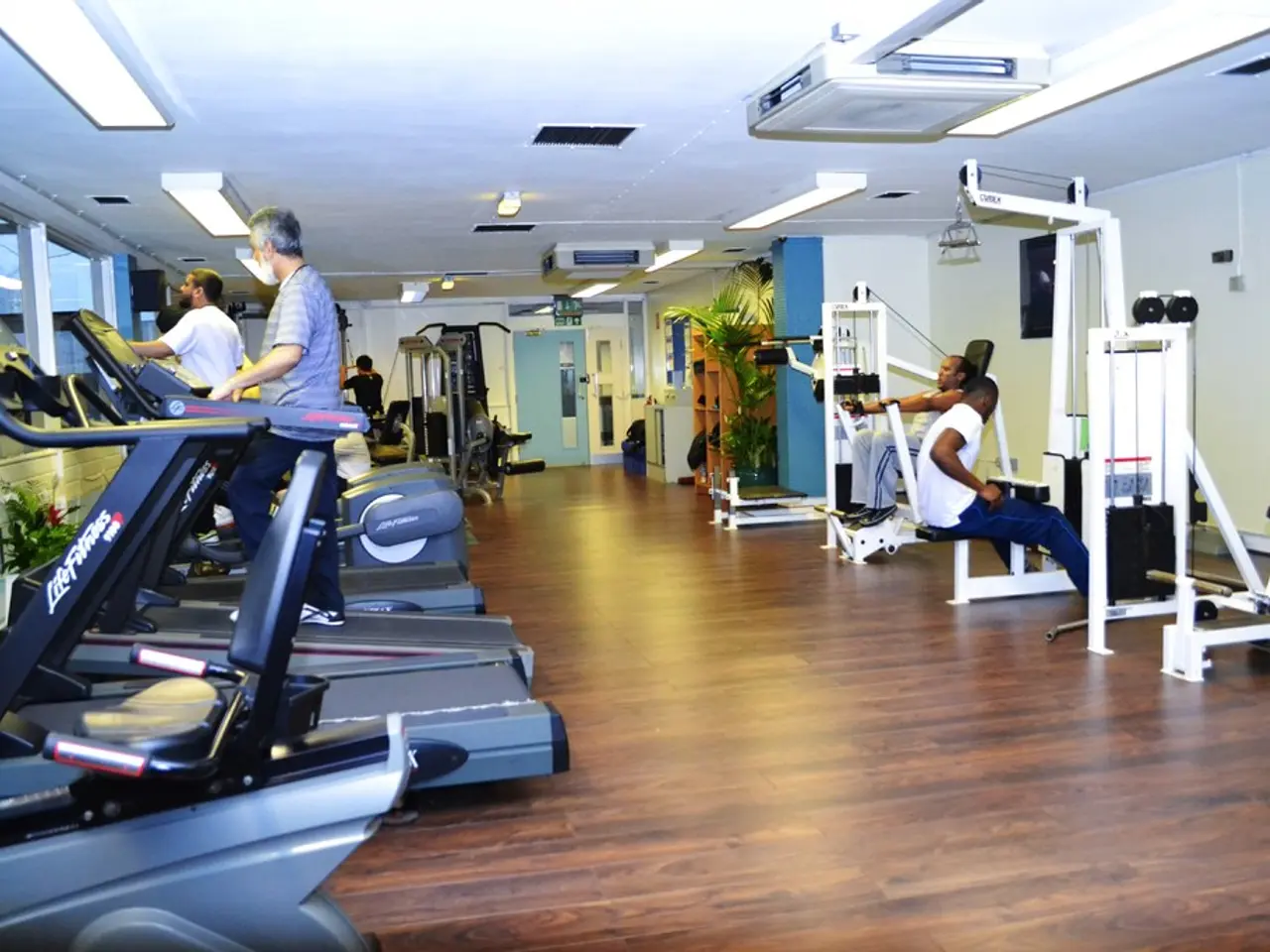Enhancing Cognitive Ability through Physical Activity: A Look at its Impact on Brain Health
Exercise isn't just good for your body, it's also a powerful tool for boosting cognitive function and overall brain health. By committing to a daily routine that includes regular physical activity, we can invest in a brighter, more mentally resilient future.
One of the key ways exercise benefits our brains is by enhancing neuroplasticity – the brain's ability to adapt and reorganize itself. This is primarily achieved through the increased production of brain-derived neurotrophic factor (BDNF), a key protein that supports the formation of new neurons and strengthens connections between brain cells. These effects are especially prominent in the hippocampus, a brain region essential for learning and memory.
During deep sleep, our brains undergo essential repair and growth processes, further enhancing the benefits of exercise-induced neurogenesis. Without proper sleep, we compromise the brain's ability to recover and optimize the gains from physical activity. Adequate sleep also guarantees we consolidate memories and improve focus, maximising exercise's cognitive benefits.
Different types of exercise have varying effects on cognitive function. Mind-body exercises like yoga or tai chi notably improve executive functions including working memory and task-switching. Resistance training excels at enhancing inhibitory control, while aerobic exercise supports overall cognitive health. Collectively, these modalities can improve global cognitive function by around 20-30% in older adults.
Exercise also helps modulate stress responses, leading to improved mood stability and emotional regulation, partly mediated by the interplay of exercise with autophagy signaling and BDNF pathways.
In addition to exercise, diet can complement the brain-boosting effects. Consuming healthy fats like omega-3s before and after workouts enhances cognitive function and supports brain health. Proper hydration maintains electrolyte balance, which is essential for muscle function and cognitive performance. Dehydration impairs focus, memory, and mood regulation.
For beginners, yoga practice and basic strength training are recommended. Senior fitness should prioritise balance and strength training for age-specific brain-boosting exercises. In childhood activities, focus on aerobic exercises and coordination tasks to promote neurogenesis and cognitive development.
Let's utilise the power of exercise to revolutionise our brain health, sharpening focus, bolstering memory, and strengthening resilience. By avoiding overexertion and ensuring sufficient rest, we mitigate burnout risks. Together, we can create a future where physical activity is not just a means to maintain a healthy body, but also a key to a sharper, more resilient mind.
- Committing to a routine that includes physical activity like yoga or tai chi, which enhance executive functions such as working memory and task-switching, can boost cognitive function.
- Beyond exercise, proper hydration maintains electrolyte balance, essential for muscle function and cognitive performance, while consuming healthy fats like omega-3s before and after workouts supports brain health and cognitive function.
- In order to reap the benefits of neurogenesis and cognitive development in children, activities focusing on aerobic exercises and coordination tasks are recommended.
- As we age, prioritizing balance and strength training in our fitness routine can promote brain-boosting exercises that help improve our overall brain health, focus, and memory, and strengthen resilience.




